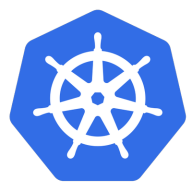

Google Kubernetes Engine and Kubernetes compete in the container orchestration platform category. Google Kubernetes Engine appears to have the upper hand due to its managed services and ease of deployment, though Kubernetes offers notable flexibility and community support.
Features: Google Kubernetes Engine provides extensive managed services to ease deployment, support for autoscaling, and seamless integration with Google's ecosystem. Kubernetes, being open-source, offers flexibility across various platforms, scalability with microservices, and strong community support.
Room for Improvement: Google Kubernetes Engine could improve cost management, integrations for monitoring, and application-level security. Kubernetes could benefit from more built-in tools for security, simpler integration options, and reduced configuration complexity.
Ease of Deployment and Customer Service: Google Kubernetes Engine is predominantly deployed in public cloud environments, noted for easy integration but faces criticism in support services compared to AWS. Kubernetes offers flexible deployment across hybrid, private, and public clouds but requires expertise for effective management, with users often relying on community forums for support.
Pricing and ROI: Google Kubernetes Engine costs are based on cloud usage and machine specifications, offering a competitive pricing model, yet can be high for complex use cases. Kubernetes, being open-source, incurs no licensing costs but can have hidden management and support costs. Both can yield positive ROI, with GKE's managed services offering operational efficiency, while Kubernetes provides cost-effectiveness when managed effectively.


Kubernetes Engine is a managed, production-ready environment for deploying containerized applications. It brings our latest innovations in developer productivity, resource efficiency, automated operations, and open source flexibility to accelerate your time to market.
Kubernetes (K8s) is an open-source system for automating deployment, scaling, and management of containerized applications.
It groups containers that make up an application into logical units for easy management and discovery. Kubernetes builds upon 15 years of experience of running production workloads at Google, combined with best-of-breed ideas and practices from the community.
We monitor all Container Management reviews to prevent fraudulent reviews and keep review quality high. We do not post reviews by company employees or direct competitors. We validate each review for authenticity via cross-reference with LinkedIn, and personal follow-up with the reviewer when necessary.